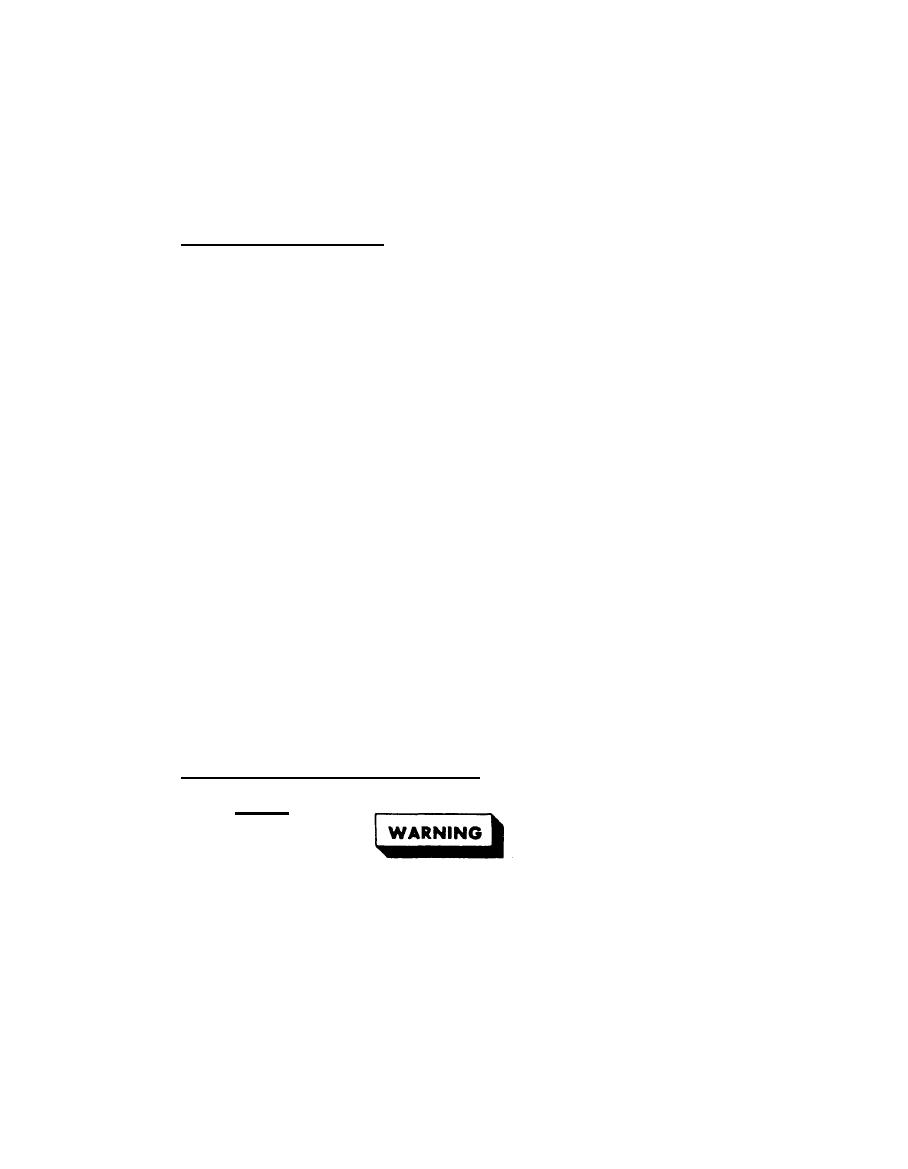 |
|||
|
|
|||
|
Page Title:
Extinguishing Fires |
|
||
| ||||||||||
|
|
 TM 5-6640-213-14
Report any deficiency immediately.
Maintain proper ventilation of the laboratory and
storerooms to prevent accumulation of flammable
vapors. Make sure that protective clothing is used
at all times.
(4) Extinguishing Fires. A detailed discussion of petro-
leum fires and procedure for extinguishing fires is contained in FM
10-69. Any class of fire can start in a petroleum laboratory where
personnel are not familiar with fire prevention. Two persons should
always be in the laboratory in case of fire or injury to one of the
people. The first thing to do in case of a fire involving flammable
products is to notify the fire department. Laboratory personnel
should then do what can be done safely with portable fire extingui-
shers until proper fire-fighting apparatus arrives. General rules
for the use of fire extinguishers are as follows:
(a) Follow the manufacturer's operating instruction.
(b) Become familiar with the types of fire extingui-
shers in the laboratory and the class of fire they are intended for.
(c) Inspect all extinguishers monthly or more often,
depending upon local fire regulations.
(d) Have pressure-type extinguishers tested hydro-
statically every 5 years.
(e) Make frequent inspections to assure that all ex-
tinguishers are in their designated places and are readily accessible,
that they have not been damaged or tampered with, that seals are
intact, and that nozzles are not clogged.
(f) Assure that extinguishers are charged immedi-
ately after use.
(5) Handling Hazardous Materials.
(a) Acids.
Sulfuric acid should not be stored with organic
compounds. It is a strong oxidant and could cause
fire if breakage occurred.
Use pyrex or equivalent glass container when
diluting acids.'
The heat generated when making acid solutions may
break ordinary glassware. Pour the acid into the
water. Never use cracked or broken glassware for
any purpose.
2-42
|
|
Privacy Statement - Press Release - Copyright Information. - Contact Us |